 I’ve barely even started working on today’s post and already I’m craving pomegranate! I love snacking on pomegranate seeds. I always prefer eating snacks that are dog safe. Snacks get dropped, and I don’t like having to play that potentially dangerous game of racing to the dropped food with my dogs. They’re faster than I am! That’s why grapes, while delicious, are pretty much banned in our house. But what about pomegranate seeds? There seems to be some conflicting information out there about whether or not pomegranates are dog safe.
I’ve barely even started working on today’s post and already I’m craving pomegranate! I love snacking on pomegranate seeds. I always prefer eating snacks that are dog safe. Snacks get dropped, and I don’t like having to play that potentially dangerous game of racing to the dropped food with my dogs. They’re faster than I am! That’s why grapes, while delicious, are pretty much banned in our house. But what about pomegranate seeds? There seems to be some conflicting information out there about whether or not pomegranates are dog safe.
This post is part of our 2023 April blogging from A to Z Challenge! Join us this month as we go through the alphabet, A to Z, learning more about some of the ingredients that are commonly (or not so commonly, in some cases) found in our dog’s food!
Post Contents:
What are Pomegranates?
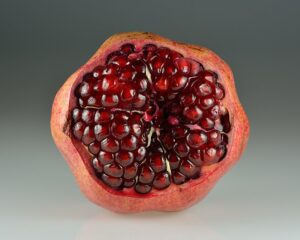
Image credit: Ivar Leidus. This file is licensed under the Creative Commons Attribution-Share Alike 4.0 International license.
Pomegranates are officially (according to me) the world’s second-best fruit. Pomegranate fruit grows on deciduous shrubs that were originally native to the Mediterranean. They have since been introduced to other areas, and are cultivated in many areas including California, the Middle East, Africa, Iran, Asia, and in their native Mediterranean.
Pomegranates are commonly eaten fresh, as well as used in baked goods, juices, smoothies, and alcoholic beverages. The fruit consists of a thick outer husk, and a thinner inner membrane where seeds are attached. Each pomegranate seed is contained inside a juice-filled seed coat.
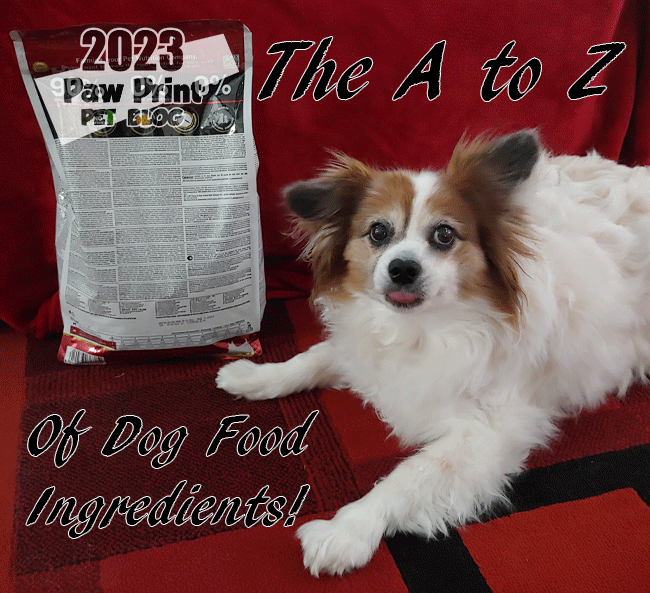
Why are Pomegranates Added to Dog Food?
My senior dog, Kitsune’s, food contains dried pomegranates. Pomegranates are packed full of healthy nutrients such as potassium, vitamin C, potassium, and antioxidants. They are high in fiber and low in calories, which means they can help your dog feel full without adding a lot of excess calories into their diet.
Cons of Feeding Pomegranates to Dogs:
Pomegranates are non-toxic to dogs. However, there are a few concerns when it comes to feeding dogs pomegranates. The biggest issue is the fact that pomegranate husks, and the seeds themselves, are very hard, if not impossible, for dogs to digest. Your dog getting into pomegranate husks, or eating too many of the seeds at once, can lead to a potentially deadly impaction.
Pomegranates, in excess, are also known for causing stomach/GI upset in dogs.
For these reasons, pomegranates should only be offered to dogs in small amounts. Never allow your dog to consume the thick outer husks of a pomegranate.
Benefits of Pomegranates for Dogs:
Pomegranates are a superfood! A 2012 study found that…
taurine, L-carnitine, pomegranate extract, and soy isoflavones exert antioxidant and cytoprotective activities through different mechanisms of action. Multi-component antioxidant treatment directed to counteract pivotal ROS-activated pathways appears as a rational intervention in heart failure.
Pomegranate extract is sometimes given to dogs to help promote heart health.
Pomegranates are high in fiber and antioxidants. Pomegranate juice is sometimes included as an ingredient in dog dental products, as it is thought to potentially help improve oral health. Polyphenol in pomegranates may help reduce inflammation and help dogs who are suffering from arthritis.
So What’s the Verdict on Pomegranates? Are They Safe as a Dog Food Ingredient?
I’d say pomegranates themselves are a ‘feed with caution’ type of food. Pomegranate seeds are not toxic for dogs, but the skin or too many of the seeds consumed at once can lead to intestinal blockage. I wouldn’t worry if you drop a pomegranate seed and your dog finds it before you do, but keep the skin away from them. Seeds should only be offered in moderation.
Pomegranates are so high in antioxidants that they are somewhat notorious for causing GI upset in dogs. This is another reason they should be offered in moderation only. However, I don’t personally worry about pomegranates being an ingredient in my dog’s food. Pomegranates, in low amounts, are safe for dogs and can provide beneficial nutrients. They may even help support things such as heart health, oral health, and arthritis.
Comment below! What is your favorite fruit? Has your dog ever tried a pomegranate, either fresh or as an ingredient in their dog food?
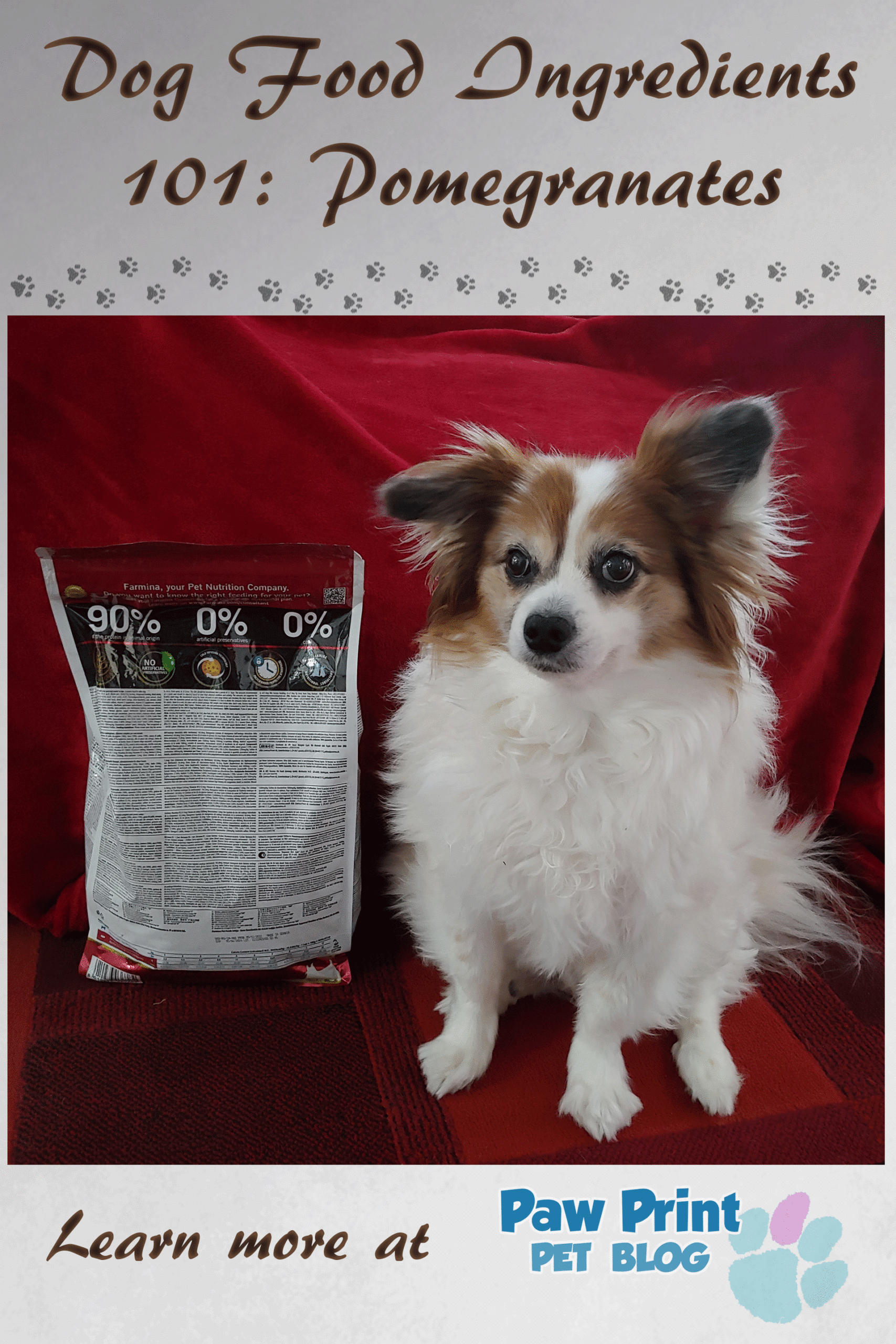
We’ve, unfortunately, been dealing with content scrapers stealing our articles lately. You shouldn’t be seeing this article on any site other than pawprintpetblog.com! If you’re reading this article on any other site, we’d love for you to take the time to contact us and let us know and, if you have the time, stop by and visit us on our official site! Thanks you.

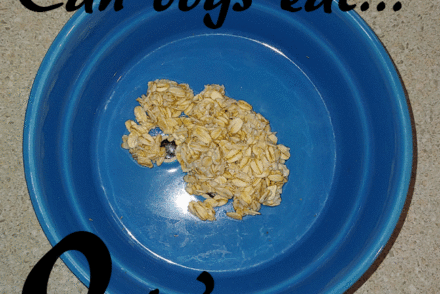
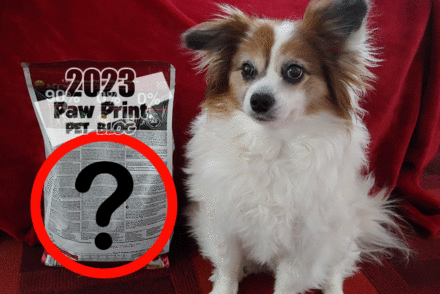
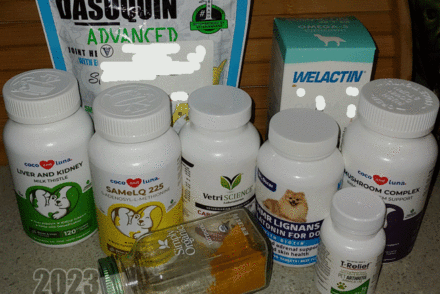

No Comments